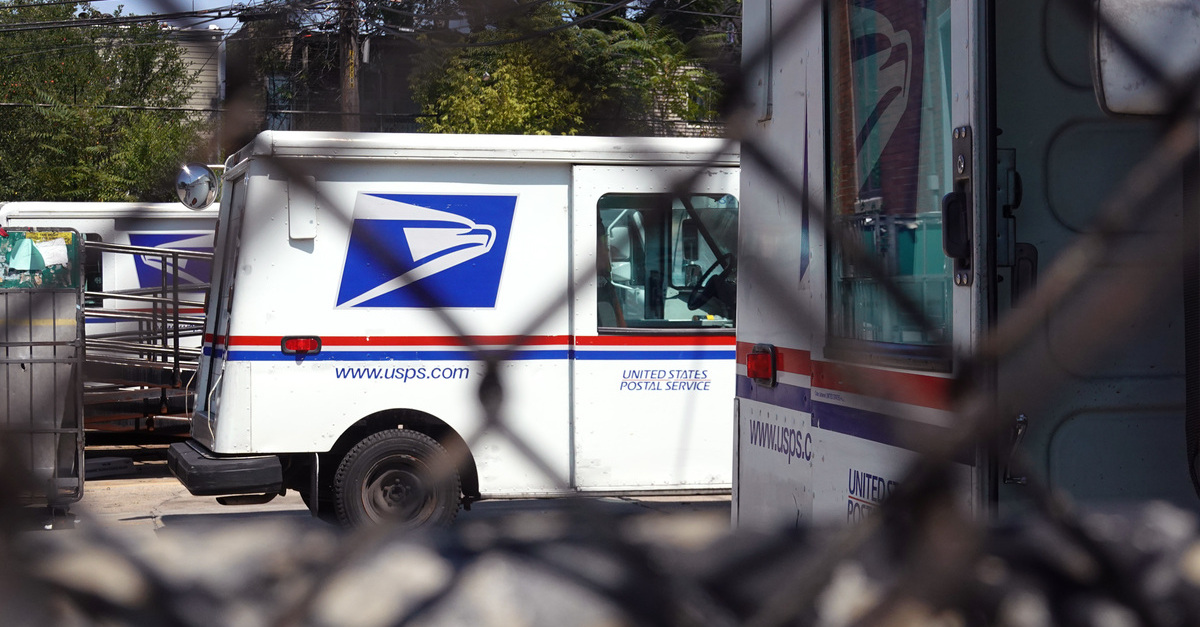
A federal judge in Washington, D.C. on Thusday ordered the U.S. Postal Service (USPS) to begin conducting twice-daily sweeps of mail processing facilities in states that accept mail-in ballots delivered after Election Day. The court’s order was handed down as election workers in several states around the country continue to tally votes in the as-yet undecided presidential election and President Donald Trump continues to file lawsuits aimed at challenging ongoing mail-in ballot counts.
Under the order, issued by U.S. District Judge Emmet Sullivan, all USPS processing facilities in states with extended ballot receipt deadlines are required to perform a morning ballot sweep before 10:00 a.m. and an afternoon sweep to locate and deliver and local ballots in the same day. The facilities are then required to report “the total number of ballots identified and confirm that those ballots have been expedited for delivery to meet applicable extended state deadlines.”
Thursday’s hearing, the third involving USPS in the last two days, stems from a series of lawsuits filed by voter advocacy groups claiming that delays in the mail system threatened the accuracy of the 2020 election, particularly in the 28 states that do not accept ballots that arrive after Election Day. Those groups highlighted the steps taken by Postmaster General Louis DeJoy to cut hours from postal staff that exacerbated the delivery problems which a series of court orders later blocked from remaining in effect.
But with Friday delivery deadlines in Pennsylvania and North Carolina quickly approaching, Judge Sullivan has kept the proceedings largely focused on the pressing need to ensure that all ballots mailed before election day reach their destination as quickly as possible.
One of the plaintiff’s attorneys started the hearing by pointing out that data provided by USPS on Wednesday relating to its delivery rates for Election Day appeared to indicate that approximately 150,000 ballots placed in the mail prior to Tuesday failed to be delivered until Wednesday, including a significant number of ballots that were mailed on Sunday.
According to the data, that meant that approximately 7,000 vote in Pennsylvania sent days in advance were not delivered until after Election Day. This development could prove to be of particular significance as President Trump, whose slight lead in the state continues to dwindle as ballots are tallied, recently filed a lawsuit claiming any ballots delivered after Tuesday should not be counted.
In Atlanta, the attorneys said 604 ballots were sent by Sunday but failed to be delivered by Election Day.
Kevin Bray, a 26-year veteran of the post office who for the past four weeks was charged with overseeing all election-related mail, also attempted to explain why the agency couldn’t track approiximately 300,000 ballots, explaining it was because of procedural changes to accelerate the delivery process. According to Bray, the reason the agency was unable to track those ballots stemmed from the decision to prioritize delivering election-related mail as quickly as possible by removing it from the normal mail-flow and sent through express delivery. While regular mail gets both an origin and a destination scan during the sorting process, express mail only gets an origin scan. The lack of a destination scan meant that ballots placed in express mail delivery flows cannot be tracked.
Bray said the agency would be able to provide a list of all unaccounted for ballots in the near future, but reiterated that the purpose of the facility sweeps was to ensure no ballots were left behind.
Judge Sullivan scheduled another hearing in the matter for Friday at 12:30 p.m.
[image via Scott Olson/Getty Images]
Have a tip we should know? [email protected]